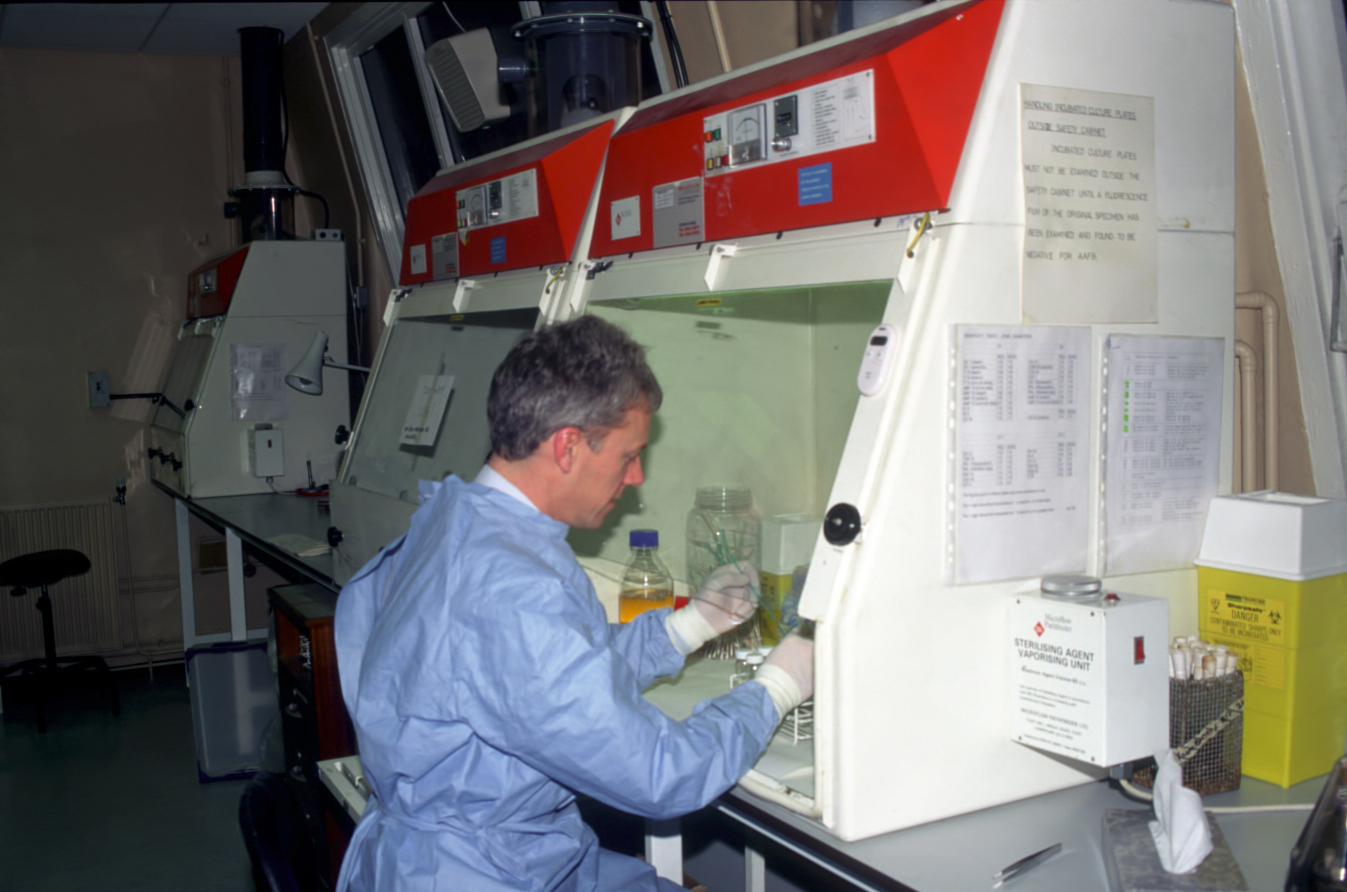How do you describe your job when you meet people at a party?
If I say I’m in the NHS I usually get “are you a doctor or a nurse?” It is far more interesting when I can say I’m involved in the ***** outbreak!
What is ‘cutting-edge’ about your work?
It is nearly always news worthy and it is said that approximately 70% of all diagnoses are lab based
What are the biggest implications your work will/could have in the future?
More rapid (accurate) diagnosis to lead to shorter hospital stay or indeed reduce the need for hospitalization
Describe some of the highlights of your average day.
Solving a reason for an error, finding a root cause. A display of satisfaction from service users
Describe briefly how your career has progressed to date.
From my earliest task of collecting sheep blood fresh from the abattoir (culture media was made from first principles then from agar weed, ox hearts, egg yolks etc) through hard work, application and successful interviews (over 38yrs) I’ve come through the ranks of the biomedical scientists to a senior managerial position and we now acquire ready to use culture media commercially (but at least I know how they make it!)
How is your job cross-disciplinary?
It could be as I’m more involved with “compliance” (meeting standards of performance, health & safety, waste disposal, security etc) which crosses all disciplines
How well is your job compensated? What is the starting salary for your field, and how much can this be expected to rise?
BMS scales are public knowledge and following a recent major pay structure review they range from approx £20k to £60k with the majority of staff around £35k. There are opportunities for overtime etc
How do you see your field developing over the next 5-10 years?
It will still be needed and it is always changing … that is science for you
What’s the most unexpected thing about your job?
The never ending strange isolate … always something of interest and that I still get a kick out of it I suppose
What’s the biggest achievement of your career so far?
Founder member and chair of the Scottish Microbiology Discussion Group. Domestically, leading a team of 4 and responsible for the Quality Management System for 13 Microbiology labs in the largest health authority in UK (Greater Glasgow & Clyde) where all these labs have achieved and maintained CPA accreditation

